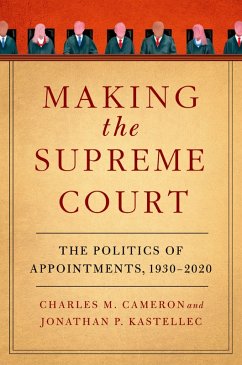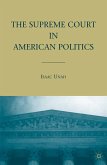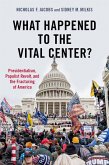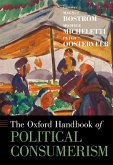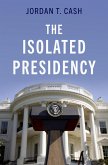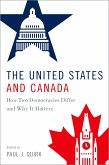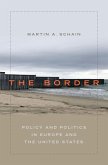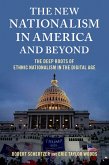Appointments to the United States Supreme Court are now central events in American political life. Every vacancy unleashes a bitter struggle between Republicans and Democrats over nominees; and once the seat is filled, new justices typically vote in predictable ways. However, this has not always been the case. As late as the middle of the twentieth century, presidents invested little time and effort in finding and vetting nominees, often selecting personal cronies, who senators briskly confirmed. Media coverage was desultory, public opinion was largely non-existent, and the justices often voted independently and erratically. In
Making the Supreme Court, Charles M. Cameron and Jonathan P. Kastellec examine 90 years of American political history to show how the growth of federal judicial power from the 1930s onward inspired a multitude of groups struggling to shape judicial policy. Over time, some groups moved beyond lobbying the Court to changing who sits on it. Other groups formed expressly to influence appointments. These activists and organized groups penetrated the national party system so that after about 1980, presidential candidates increasingly pledged to select and confirm nominees who conformed to specific policy and ideological litmus tests. Once in office, these presidents re-shaped the executive selection system to deliver on their promises. Moreover, the selection process for justices turned into media events, often fueled by controversy. As Cameron and Kastellec argue, the result is a new politics aimed squarely at selecting and placing judicial ideologues on the Court. They make the case that this new model gradually transformed how the Court itself operates, turning it into an ideologically driven and polarized branch. Based on rich data and qualitative evidence,
Making the Supreme Court provides a sharp lens on the social and political transformations that created a new American politics.
Dieser Download kann aus rechtlichen Gründen nur mit Rechnungsadresse in A, B, BG, CY, CZ, D, DK, EW, E, FIN, F, GR, HR, H, IRL, I, LT, L, LR, M, NL, PL, P, R, S, SLO, SK ausgeliefert werden.

